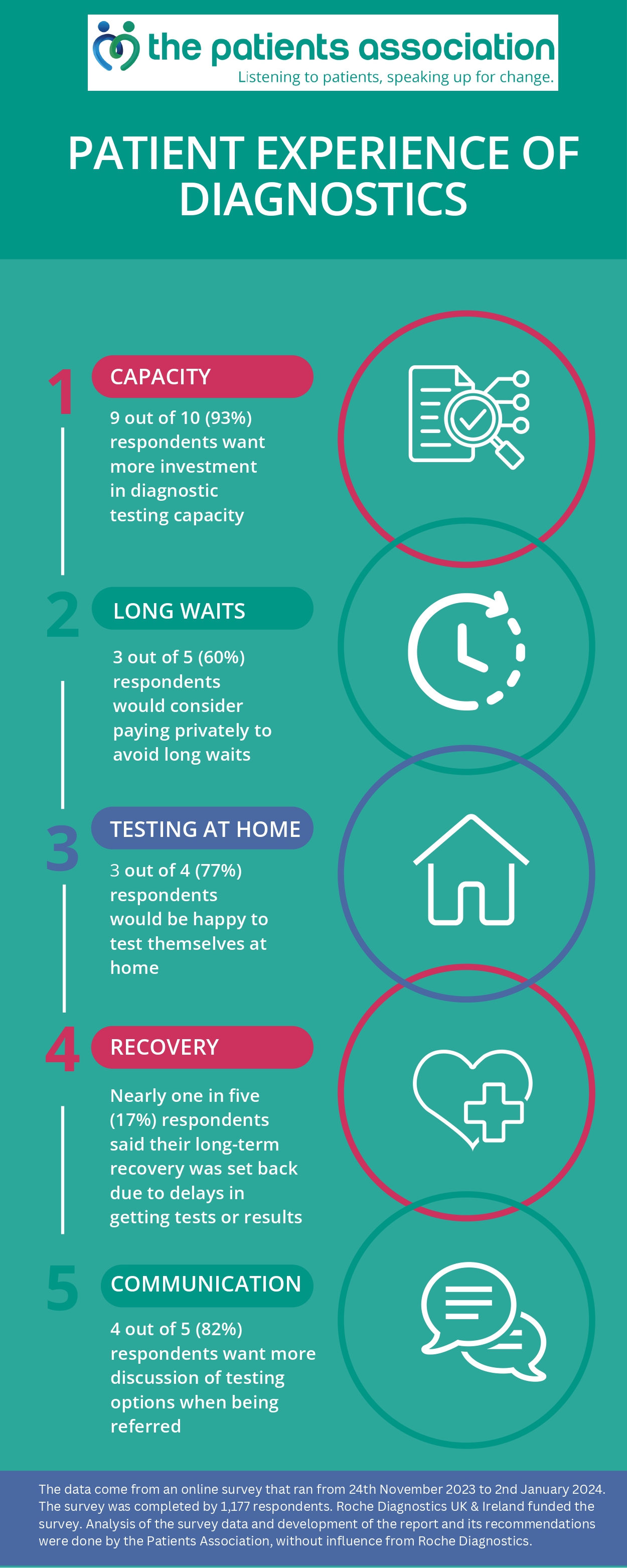T: 01822 851370 E: [email protected]
Diagnostics: The Cornerstone of Modern Healthcare

In the contemporary healthcare landscape, the significance of diagnostic services has never been more pronounced. A recent report by The Patients Association ‘Patient Experience of Diagnostics Report’ underscores a critical issue facing the NHS and its patients, especially those in rural areas: the urgent need for enhanced access to diagnostic services.
Diagnostic Services: A Priority for Patients
The report, based on the experiences and opinions of over 1,000 NHS patients, brings to light the crucial role that diagnostic testing plays in the healthcare system. An overwhelming 93% of respondents expressed a desire for increased investment in testing capacity, highlighting the need for rapid access to diagnostic services to ensure timely treatment and improve patient outcomes.
 |
Barriers to Access
The findings reveal a stark reality: 60% of patients would consider paying for private testing due to prolonged waits, and 36% reported a decline in physical health during such delays. This situation is untenable, particularly for rural communities where access to diagnostic facilities may already be limited. The report's message is clear - delays in diagnostics not only exacerbate health deterioration but also impose additional costs on the NHS through increased hospitalisations and treatment complexities.
Towards Patient-Centred Diagnostics
Patients are calling for a more transparent and participatory approach to diagnostic testing.
Key insights from the report include:
 |
These findings point to a growing demand for patient-centred care, where individuals are informed, involved, and empowered in their diagnostic journeys.
Recommendations for the Future
The report outlines several actionable recommendations to improve diagnostic services:
1. Expand Community Diagnostic Hubs: Increasing the capacity and variety of tests available at the community level can alleviate pressures on central NHS facilities and improve access for rural populations.
2. Increase Transparency in Waiting Times: Utilising NHS data to inform patients about expected wait times for tests and results can enhance trust and manage expectations.
3. Support At-Home Testing: Encouraging the use of clinically safe at-home testing options can expedite diagnosis and reduce burdens on healthcare facilities.
4. Improve Patient Communication: Ensuring that patients understand the reasons for tests, available options, and implications of results is essential for a patient-centred approach.
A Unified Call to Action
The Patients Association's report is a vital contribution to the ongoing discussion about the future of healthcare in the UK. For members of the Rural Services Network and beyond, the findings underscore the imperative to advocate for improved diagnostic services. Enhanced diagnostic capabilities are not just a matter of convenience; they are a critical component of effective healthcare, promising better outcomes, reduced hospitalizations, and a more sustainable NHS.
As we move forward, it is crucial for all stakeholders—healthcare providers, policymakers, and the community—to unite in addressing the challenges highlighted in this report. Together, we can work towards a future where access to essential diagnostic services is not a luxury but a standard component of patient care.
The full report, ‘Patient Experience of Diagnostics Report,’ offers deeper insights into the survey methodology, detailed findings, and patient case studies, providing a comprehensive view of the current state of diagnostic services in the NHS.



